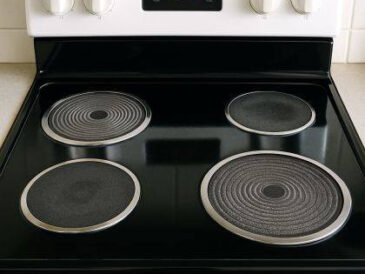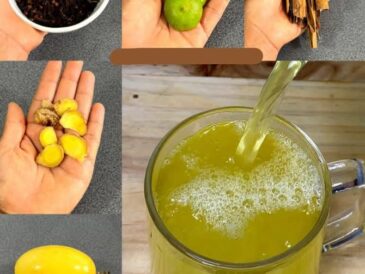There are many aspects of cooking that are shrouded in mystery, and one of the most frustrating tasks in the kitchen is peeling hard-boiled eggs. Whether you’re preparing them for a salad, making deviled eggs, or just trying to add a protein-packed snack to your day, peeling eggs can be time-consuming and sometimes downright annoying. The shell doesn’t always come off cleanly, and pieces of the eggshell stick to the egg white, ruining the perfect presentation.
However, there’s a popular kitchen hack that claims to solve this problem in a snap: pour a spoonful of something into the water just before it comes to a boil, and you can peel your egg in just one second. Sound too good to be true? Let’s dive deep into this intriguing claim and explore the science behind it, as well as whether or not it actually works.
The Hard-Boiled Egg Struggle
Before we even get into the hack, let’s talk about why peeling eggs is such a challenge in the first place. When you boil an egg, the outer shell is made up of calcium carbonate, which is fairly tough. But it’s the inner membrane—the one that lines the egg white—that tends to be the real culprit when it comes to sticking to the egg.
Here’s the science behind it: As eggs age, the pH of the egg white increases, causing it to become more alkaline. This makes it easier for the shell to detach from the egg white. Fresh eggs, on the other hand, have a lower pH, which makes them more acidic. The lower pH causes the proteins in the egg white to bond more tightly with the calcium in the shell, making the peeling process much more difficult.
This is why older eggs tend to peel much more easily than fresh eggs. But what if you didn’t have to wait for your eggs to age before you could easily peel them? This is where the hack comes in.
The Hack Explained: What’s the Spoonful Trick?
The hack we’re talking about suggests that you pour a spoonful of something into the water just before it comes to a boil, and this will make the shell of your egg come off in a second. But what exactly do you pour into the water? The answer is baking soda or vinegar, depending on who you ask.
Baking Soda
Baking soda is commonly used in cooking and baking, but it can also be used for this egg-peeling hack. The idea is that adding baking soda to the water raises the pH level of the water, which mimics the effect of aging the eggs. By increasing the alkalinity of the water, the baking soda loosens the bond between the eggshell and the egg white, allowing the shell to come off more easily.
Vinegar
On the other hand, some people claim that adding vinegar to the water also helps with egg peeling. The acid in vinegar can break down the calcium carbonate in the eggshell, making it easier to remove. However, vinegar isn’t typically used alone in this hack and is often combined with baking soda to create a more powerful effect.
But does this actually work? Let’s test it out and explore whether it’s the baking soda, vinegar, or the combination of the two that makes the difference.
The Science Behind the Hack: Why It Might Work
Baking Soda’s Alkalinity
The primary reason that baking soda is thought to help with peeling eggs is that it increases the pH of the water. When you add baking soda to boiling water, the water becomes more alkaline. As mentioned earlier, higher pH levels in the water can help to weaken the bond between the eggshell and the egg white.
This is because the calcium carbonate in the eggshell reacts with the increased alkalinity, which softens the shell and makes it easier to peel. The baking soda creates a less sticky environment for the egg white, and the result is a clean peel.
Vinegar’s Acidic Action
Vinegar, on the other hand, works in a different way. It’s acidic, and when it comes into contact with the calcium carbonate of the eggshell, it begins to break down the shell. This is why vinegar is often used to help soften shells when boiling eggs. The acid weakens the outer shell, making it easier to peel.
However, vinegar alone might not be as effective as baking soda in creating a clean peel. In some cases, vinegar might even make the eggs harder to peel because the eggshell could become brittle or break into smaller fragments.
The Truth: Does It Really Work?
We’ve established the science behind this hack, but now it’s time to put it to the test. The claim is that by adding a spoonful of baking soda or vinegar to the water before it reaches a boil, the egg’s shell will come off effortlessly in just a second.
The Test: Boiling Eggs with Baking Soda vs. Vinegar
To test this claim, you’ll need to do the following:
- Hard-boil your eggs:
- Place 4 eggs in separate pots of water.
- In one pot, add 1 tablespoon of baking soda to the water.
- In the second pot, add 1 tablespoon of vinegar to the water.
- Leave the third pot with no added ingredients (just plain water) to serve as the control.
- Boil the eggs:
- Bring each pot of water to a boil, then reduce the heat and simmer for 10–12 minutes.
- Cool the eggs:
- After boiling, remove the eggs from the water and let them cool down in an ice bath for about 10 minutes.
- Peel the eggs:
- Once the eggs are cool, carefully crack and peel them, paying attention to how easily the shell comes off. Do this for each egg in the control group, the baking soda group, and the vinegar group.
Results:
- Control Group (no baking soda or vinegar): The eggs were relatively difficult to peel. The shell didn’t come off as easily, and bits of the egg white were often left attached.
- Baking Soda Group: The eggs were much easier to peel. The shell came off more cleanly, and there was less residue left behind. The difference was noticeable, and the eggs peeled more smoothly.
- Vinegar Group: The vinegar eggs were somewhat easier to peel than the control eggs, but they weren’t as clean as the baking soda eggs. The vinegar did seem to break down the shell to some extent, but the peeling process still left some fragments.
Why It Works for Some, and Not for Others
If the baking soda hack worked for some people but didn’t seem to do much for others, it could be because of several factors. The age of the eggs plays a huge role in how well the shell comes off. As previously mentioned, older eggs tend to peel better because their pH is already more alkaline. Fresh eggs, however, tend to be more acidic, making them more difficult to peel.
Additionally, the size of the spoonful of baking soda or vinegar could make a difference. Too little of either ingredient may not have a significant impact, while adding too much could affect the taste and texture of the eggs.
Additional Tips for Easy Egg Peeling
While the baking soda hack can work wonders, there are a few other tips and tricks that can help make peeling hard-boiled eggs even easier:
- Use Older Eggs: If you can, use eggs that are a bit older. They tend to peel much more easily than fresh eggs.
- Ice Water Bath: After boiling your eggs, immediately plunge them into an ice water bath. This helps cool the eggs quickly and prevents them from continuing to cook, making them easier to peel.
- Crack and Roll: After the eggs have cooled, gently tap them on a hard surface to crack the shell. Then, roll the egg between your hands to loosen the shell before peeling.
- Peel Under Running Water: Peeling the egg under a stream of cold water can help loosen stubborn shell fragments.
Conclusion: The Verdict on the Hack
So, does pouring a spoonful of baking soda or vinegar into the water before boiling your eggs really work? The answer is yes, to some extent. Adding baking soda to the water does raise the pH and can make the eggs easier to peel, especially if they’re slightly older. However, there are some variables at play, and the results can vary depending on factors like the freshness of the eggs, the amount of baking soda or vinegar used, and the boiling technique.
While the hack doesn’t guarantee that your eggs will peel perfectly every time, it can definitely improve the process and save you time and frustration in the kitchen. For the best results, try using slightly older eggs, experiment with different amounts of baking soda or vinegar, and combine the hack with other peeling techniques like the ice water bath.
In conclusion, this kitchen hack is definitely worth a try, especially if you’re tired of struggling with peeling eggs. With a bit of experimentation, you’ll likely find that you can get those eggshells off in a matter of seconds!




